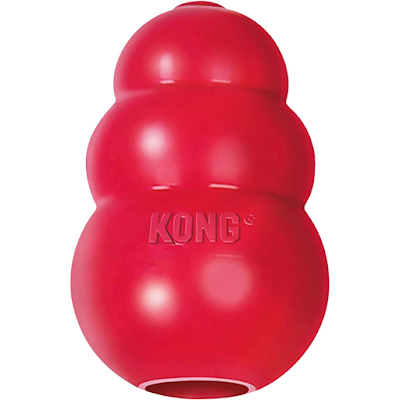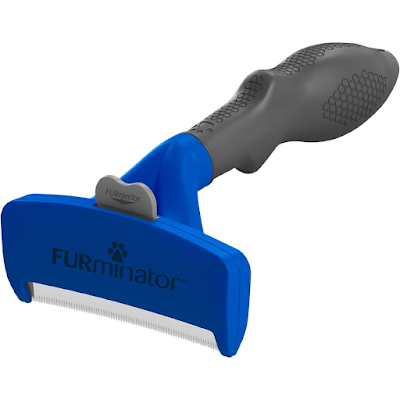How to Know If You Should Get a Dog
Deciding to bring a dog into your life is a significant and rewarding decision. As a content writer with a passion for pets, I’ve had the pleasure of researching and writing about dogs for years. This article aims to guide you through the essential considerations to determine if you’re ready for the joys and responsibilities of dog ownership.
Dogs are often called “man’s best friend” for a reason. They offer companionship, loyalty, and endless joy. However, owning a dog is not just about the fun moments; it also involves a lot of responsibility. Before you decide to get a dog, it’s crucial to evaluate various aspects of your life to ensure you’re making an informed decision.
This post may contain affiliate links at no extra cost to you. Please read our full disclosure here to find out more.
1. Assessing Your Lifestyle
Time Commitment
Owning a dog requires a significant time commitment. Dogs need daily exercise, feeding, grooming, and training. If you have a busy schedule, you need to consider if you can dedicate enough time to meet these needs. For instance, a high-energy breed like a Border Collie will need more exercise and mental stimulation compared to a more laid-back breed like a Bulldog.
Work Schedule
Your work schedule plays a crucial role in determining if you can care for a dog. If you work long hours or travel frequently, you need to plan for dog care. Options include hiring a dog walker, using doggy daycare services, or having a trusted friend or family member help out.
Travel
If you travel often, consider how you will manage your dog’s care. Some dogs can travel with you, but others may need to stay behind. You’ll need to arrange for a pet sitter or boarding facility, which can add to the cost and logistics of travel.
2. Financial Considerations
Initial Costs
The initial costs of getting a dog can be substantial. These include adoption fees, vaccinations, spaying/neutering, and initial supplies like a bed, leash, and food bowls. It’s essential to budget for these expenses to avoid any surprises.
Ongoing Costs
Dogs require ongoing financial investment. This includes food, grooming, regular vet visits, and pet insurance. High-quality dog food and regular grooming can add up, so it’s important to factor these into your monthly budget.
Emergency Funds
Unexpected medical expenses can arise, and it’s wise to have an emergency fund for your dog. Whether it’s an injury or illness, having funds set aside can ensure your dog gets the care they need without financial stress.
3. Space and Environment
Living Space
Your living space is another critical factor. Dogs need room to move around and play. If you live in an apartment, consider the size and energy level of the dog. Larger breeds or high-energy dogs may require more space and access to outdoor areas.
Dog-Friendly Home
Creating a safe and comfortable environment for your dog is essential. This includes dog-proofing your home, providing a cozy bed, and ensuring they have access to fresh water and food. A dog-friendly home also means having a secure yard or nearby park for exercise.
Local Regulations
Before getting a dog, check local regulations and pet policies. Some areas have breed restrictions or limits on the number of pets you can have. Understanding these regulations can help you avoid any legal issues.
4. Family and Household Dynamics
Family Members
It’s important to ensure that all family members are on board with getting a dog. Discuss responsibilities and expectations with everyone in the household. A dog is a family commitment, and everyone should be prepared to contribute to their care.
Children and Pets
If you have children, teaching them how to interact with dogs is crucial. Supervise interactions to ensure safety and help build a positive relationship between your children and the dog. Additionally, consider the dog’s temperament and how it fits with your family’s dynamics.
Other Pets
Introducing a new dog to existing pets requires careful planning. Gradual introductions and monitoring interactions can help ensure a smooth transition. Some dogs may get along well with other pets, while others may need more time to adjust.
5. Researching Dog Breeds
Energy Levels
Different dog breeds have varying energy levels. It’s important to choose a breed that matches your lifestyle. For example, if you enjoy outdoor activities, a high-energy breed like a Labrador Retriever might be a good fit. On the other hand, if you prefer a more relaxed lifestyle, a breed like a Shih Tzu might be more suitable.
Size and Space Needs
Consider the size of the dog and how it fits with your living space. Larger breeds may need more room to move around, while smaller breeds can adapt well to apartment living. Ensure you have enough space to accommodate your dog’s needs.
Temperament and Behavior
Each breed has its own temperament and behavior traits. Researching these traits can help you choose a breed that fits your personality and living situation. For example, some breeds are known for being friendly and sociable, while others may be more independent.
6. Preparing for a Long-Term Commitment
Lifespan
Dogs are a long-term commitment, often living 10-15 years or more. It’s important to consider how your life might change over the years and ensure you’re prepared to care for your dog throughout their life.
Training and Socialization
Investing time in training and socializing your dog is crucial for their well-being. Proper training can help prevent behavioral issues and ensure your dog is well-mannered. Socialization helps your dog become comfortable with different people, animals, and environments.
Health and Wellness
Regular vet visits and maintaining your dog’s health are essential. This includes vaccinations, dental care, and preventive treatments for parasites. A healthy dog is a happy dog, and regular check-ups can help catch any potential issues early.
7. Emotional Readiness
Companionship Needs
Dogs provide companionship and can be a great source of emotional support. Assess your need for companionship and how a dog can fulfill that role in your life. Dogs thrive on human interaction and can help reduce feelings of loneliness.
Handling Stress
Owning a dog can be stressful at times, especially when dealing with training, health issues, or behavioral problems. It’s important to be prepared for these challenges and have strategies in place to manage stress.
Bonding and Attachment
Building a strong bond with your dog is one of the most rewarding aspects of dog ownership. Spending quality time together, engaging in activities, and providing love and care can help strengthen your relationship with your dog.
Product Recommendations
As a dog owner, I’ve found a few products that have made my life easier and my dog’s life more enjoyable. Here are three recommendations from Amazon:
The KONG Classic Dog Toy is a must-have for any dog owner. It’s durable, versatile, and great for keeping your dog entertained. You can stuff it with treats or peanut butter to provide mental stimulation and prevent boredom.
Check out the KONG Classic Dog Toy on Amazon.
2. Furminator Undercoat Deshedding Tool
The Furminator Undercoat Deshedding Tool is perfect for managing shedding. It helps reduce loose hair and keeps your dog’s coat healthy and shiny. Regular grooming with this tool can also help prevent matting and tangles.
Get the Furminator Undercoat Deshedding Tool on Amazon.
3. MidWest Homes for Pets Dog Crate
A good quality dog crate is essential for training and providing a safe space for your dog. The MidWest Homes for Pets Dog Crate is sturdy, easy to clean, and comes in various sizes to fit your dog’s needs. It’s also great for travel and house training.
Purchase the MidWest Homes for Pets Dog Crate on Amazon.
Deciding to get a dog is a big step that requires careful consideration and planning. By assessing your lifestyle, financial situation, living environment, and emotional readiness, you can make an informed decision that benefits both you and your future furry friend. Remember, owning a dog is a long-term commitment that brings immense joy and companionship. Take the time to research and prepare, and you’ll be well on your way to a rewarding and fulfilling relationship with your new dog.
If you have any questions or need further guidance, feel free to reach out. Happy dog parenting!




Comments
Post a Comment